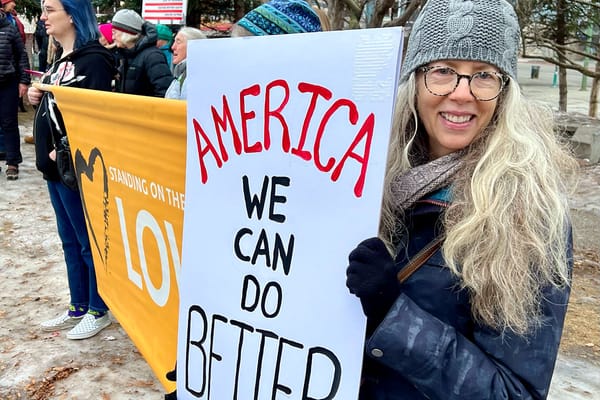Truth Trumps Tyranny

Leveraging Your Influence to Take Down an Aspiring Dictator
Smoke, mirrors, and relentless self-promotion—Trump built an empire on illusion, and America is still buying it. He inherited wealth and squandered it through multiple bankruptcies. When he could no longer borrow to build, he pivoted to selling his most valuable asset: his name—one he inherited from a more business-savvy father.
Once he branded his name, he also had to craft a matching persona. He didn’t need to be honest—only marketable. Perhaps his only true talent is self-promotion, and nothing exemplifies this more than his evolution from a wealthy heir to reality TV star and pop-culture icon.
When first approached about hosting The Apprentice, Trump scoffed and said reality television was “for the bottom-feeders of society.” But producer Mark Burnett shrewdly appealed to his ego and opportunism, suggesting he appear as a savvy and successful business tycoon with a luxurious lifestyle.
It was a win-win for Trump. His persona reached a massive audience, associating his name with wealth and power like never before. It solidified his image as a smart business executive—which he never truly was. This illusion propelled his first successful presidential campaign. Enough people bought the message, believing he was a powerful government outsider who would parlay his business success into Washington reforms by draining the swamp and restoring America to a fictitious golden age.
He relies on that illusion now more than ever, as he sinks further into depravity and authoritarianism. His consolidation of power depends on enough people continuing to buy the lie. During his first term, the constitutional balance of power curbed some of his worst impulses and policies, but we saw the depths he was willing to plumb with the 2020 election denial and the subsequent January 6th insurrection he incited.
This time around, the brakes are off. Thanks to a weak Congress, a biased Supreme Court, incompetent officials, and a glacial judicial system he expertly exploits, he’s dismantling democracy. And he’s doing it with the help of extremists and cronies eager to claim the spoils.
One particularly dangerous faction is far-right Christian nationalists, who have sought to impose their brand of morality on the country for decades—since at least 1956, when they changed the U.S. motto from E Pluribus Unum (“Out of Many, One”) to In God We Trust. They have patiently awaited a candidate willing to trade his notoriety for their support. Trump was the one they were waiting for.
Alongside the Christian Nationalists are tech bros and billionaires—unholy alliances of convenience doomed to fracture when ambitions collide. But the problem isn’t so much that they exist; it’s that they coalesced, outlined a plan, and acted, while Democrats engaged in infighting and placed misguided faith in governmental norms and the rule of law.
Though the situation seems dire, our beliefs will determine our downfall or salvation. As Egyptian activist Wael Ghonim, who helped spark the Arab Spring protest put it:
“The power of the people is much stronger than the people in power.”
If we buy the lie and believe Trump is more powerful than we are, we willingly concede our democracy and all the protections that go with it. On the other hand, if we realize how many we number—not just Democrats, but everyone who values democracy—we will overcome. And when I say everyone, I mean EVERYONE: Republicans, Green Party members, Libertarians, non-partisans, and every brand of Democrat, as well as every race, religion, ethnicity, and gender. This is going to take a DEI army. The only requisites are a desire to end tyranny and a willingness to check intolerance at the door.
The reality is that some, if not most, of Trump’s current allies are not as loyal as they might appear. How do I know this? Because many of those now kissing the ring were once fierce critics—even arch enemies. Certainly, it wasn’t his charm, generosity, or integrity that won them over. They know full well he’s the mean-spirited, corrupt little man he always was—if anything, he's even worse—a festering boil on the buttocks of humanity.
They switched as soon as they believed he held the best hand, which is what some people do in situations like this. They’re either opportunists, hoping to catch some scraps, or they’re afraid for their careers, reputations, prestige, or security. However, once his weakness is exposed, they'll abandon him faster than fleas jump off a dead dog.
I know it's hard to feel hopeful while drowning in a sea of discouraging and demoralizing propaganda. Each day brings fresh new policy proclamations designed to stoke fear and suppress resistance. Apart from a few federal judges blocking the most unconstitutional executive orders, little is stopping Trump from becoming the full-blown dictator he aspires to be.
Just remember, this messaging is meant to overwhelm and oppress. It's Trump's modus operandi, and now that he controls much of the mainstream media, along with several major social media platforms, his reach has expanded significantly. This only makes our work harder, but not impossible.
The Silent Majority: Who Didn’t Vote for Trump—And Why It Matters
Accepting that the 2024 general election was free and fair—a questionable proposition considering Elon Musk’s proven willingness to illegally interfere in government systems—49.8% of voting-eligible citizens voted for Trump, 48.3% for Harris, just under 2% for third-party candidates, and 36% didn’t vote at all. Of those who didn’t vote, some abstained because they disliked all candidates, while others were simply indifferent. Among those who voted for Trump, many did so reluctantly, hoping he’d bring down the price of eggs
Put another way, of the 244.6 million voting-eligible citizens in the United States, Here’s how they voted: 77.3 million for Trump, 75 million for Harris, 2.9 million for third-party candidates, and 89.6 million did not vote.
Considering the total U.S. population of 334.9 million—including those ineligible to vote—77% DID NOT VOTE FOR TRUMP. And of the 23% of Americans who did, an even smaller percentage are hardline supporters.
Any way you look at it, this means the vast majority of Americans did not vote for him and could be recruited into the resistance. They are the ones to reach in order to beat Trump at his own game.
How Do We Reach Them?
For starters, you don’t need to be a mega-influencer to make a big impact. You just need the right message for the right audience. The key? Avoid direct attacks on Trump or his allies. Instead, draw a clear line between his policies and the hardships people face. A great example of this in action is in the From One Farmer to Another video on YouTube, where a Midwesterner shares his political perspective with a fellow farmer.
Here are some powerful ways to spread the message:
- Kitchen Table Conversations: If there are Trump supporters in your life and you have the emotional bandwidth, engage them.
- Sticky Note & Sticker Campaigns: Leave messages about Trump’s harmful policies in public places. Imagine the impact if thousands were doing this simultaneously nationwide.
- Public Protests: With Trump controlling the media, visibility is critical—to boost morale and show strength in numbers.
Organizations and coalitions can fund large-scale marketing campaigns using the following channels:
- Billboards & Marquees
- Print & Digital Advertising
- TV, Movie, Radio, Podcast, and Social Media Commercials
- Boycotts & Strikes
We must leverage every possible channel to showcase the strength of the resistance and expose Trump’s failings.
The good news? Though we started slow, the odds are in our favor. There are more of us—and we have truth on our side.
Strip away the illusion and he really is a weak little man.





